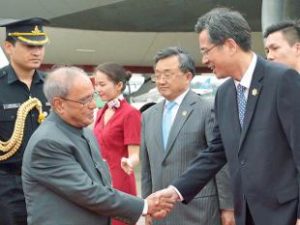 E-commerce marketplace Askme Bazaar plans to help small and medium vendors who are transacting on its site by arranging credit and insurance products for them. These services will be provided via Askme Fin, the groups’ financial services platform. In the last 2-3 months, Askme Fin has helped about 75 SMEs to raise loans from banks and SMEs, Pawan Lohia CEO, Askme Fin, told FE.
E-commerce marketplace Askme Bazaar plans to help small and medium vendors who are transacting on its site by arranging credit and insurance products for them. These services will be provided via Askme Fin, the groups’ financial services platform. In the last 2-3 months, Askme Fin has helped about 75 SMEs to raise loans from banks and SMEs, Pawan Lohia CEO, Askme Fin, told FE.
AskMe Fin has tied up financial institutions such as Mahindra Finance, Bajaj Finserv, Religare, Capital Float, ICICI Bank, Sme.com and Mandi.com to help SMEs access loans and is in talks with other banks and NBFCs who can lend to vendors.
Anand Sonbhadra, group – CFO of AskMe Fin, said his firm had facilitated disbursements of Rs 30 lakh across 150 merchants till date. The firm hopes to assist 10,000 online and offline merchants raise loans worth around Rs 1,000 crore by the end of March 2017. The average loan size varies from Rs 8-10 lakh, he added.
Askme Pay intends to add 2-3 million merchants. AskMe Pay, the payment platform of AskMe Group will be launched by June and will enable integration of other wallets on its platform. AskMe Pay will largely earn revenue via merchant discount rates and loan referral commissions from lenders, which is the range of 20-30% of the processing fee. Also services related to customer relationship management, marketing and promotional activities will fetch revenue from the merchant, Sonbhadra explained.
According to a TechSci Research Report – India Mobile Wallet Market Opportunities and Forecast, 2020, the mobile wallet market in India is projected to grow to $ 6.6 billion by 2020. A Nielsen report in February adjudged Paytm the most popular mobile wallet followed by Freecharge and MobiKwik, respectively.





